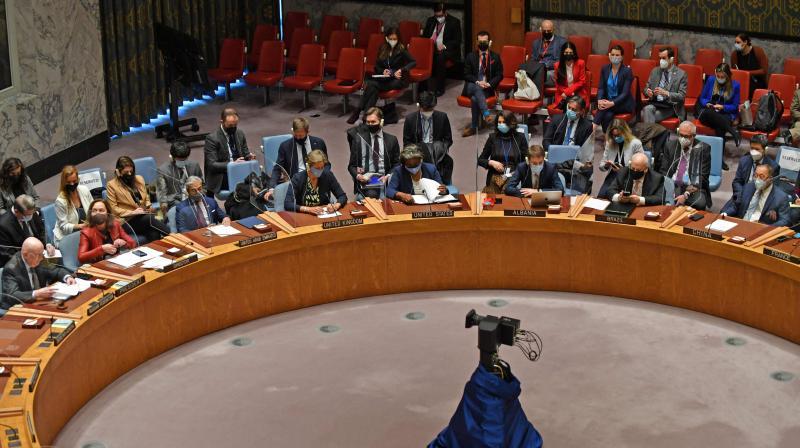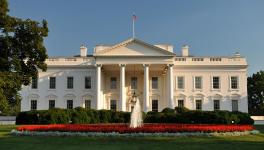What Exactly is the SWIFT Payments System?

On Saturday, the US, the UK and the European Union decided to shut out "selected" Russian banks from the international SWIFT payments system after strong initial resistance especially from Germany. The latter feared such a move could harm its own economy enormously because of payments for Russian gas and oil being processed through SWIFT. In the end, international pressure finally saw the German government give up its reservations.
Ukrainian Foreign Minister Dmytro Kuleba didn't mince his words earlier last week in calling out the European Union for dragging its feet on shutting Russia out of SWIFT.
"Everyone who now doubts whether Russia should be banned from SWIFT has to understand that the blood of innocent Ukrainian men, women and children will be on their hands too," Kuleba wrote on Twitter.
Many others, including several leaders from within the EU, had shared Kuleba's sentiment that Russia should be cut off from the international payments system in response to President Vladimir Putin's war against Ukraine.
What is SWIFT?
SWIFT, or the Society for Worldwide Interbank Financial Telecommunication, is a secure global messaging network that banks use to make cross-border payments. The network facilitates financial institutions to wire money to each other, helping ensure that global trade carries on smoothly.
It is used by more than 11,000 financial institutions in over 200 countries and territories to send secure payment orders. Nearly 40 million messages with instructions to transfer trillions of dollars were sent each day in 2020 over the platform, making it the most important payment messaging network in the world, by far.
Because the messages sent over the platform are deemed secure, it helps banks honor the payment instructions swiftly. This ensures that financial institutions can handle high volumes of transactions every day.
The Belgium-based society, founded in 1973, is overseen by central banks in Europe, the United States, Canada and Japan.
What will the agreed ban mean for Russia?
Cutting off Russia from the network will cause a major disruption to its economy as it would severely restrict the country's access to global financial markets.
The ban will make it difficult for Russian firms and individuals to pay for imported goods or receive payments for their exports, dealing a major blow to the country's crucial oil and gas sector, which relies heavily on SWIFT for the movement of funds. It will also restrict Russians' ability to invest or borrow overseas.
The booting of Iranian banks from the network in 2012 was partly responsible for a dramatic drop in the country's oil exports.
Russian financial institutions could use other channels such as phones, messaging apps or email as alternatives and process payments via banks in countries that have not imposed sanctions. But these alternatives will not be as efficient and secure as SWIFT and could lead to higher costs and a fall in transaction volumes.
Russia has developed its own payment messaging network, called SPFS. The system, which handles about a fifth of domestic payments, underwhelms when it comes to the scale and efficiency that SWIFT offers.
Why did the EU hold back for so long?
The EU economy is more intertwined with Russia's than the US economy is and stands to lose much more if Moscow gets shut out of SWIFT.
Data from the Bank of International Settlements (BIS) shows that EU banks hold a major chunk of the nearly $30 billion (€27 billion) in foreign banks' exposure to Russia.
The European Union is Russia's biggest trade partner. About 37% of Russia's imports came from the EU in 2020 and nearly 38% of its exports went to the EU. The bloc relies heavily on Russia for its energy needs and gets more than a third of its gas supply and about a quarter of its oil from the country.
"[A SWIFT ban] is also going to be very bad for Europe because, if they can't pay for Russian gas, using correspondent banks that use dollars in the middle of the transaction of buying their oil and gas from Russia, it's going to create havoc on the gas markets and possibly result in having gas turned off in winter," Alexandra Vacroux, executive director of the Davis Center for Russian and Eurasian Studies at Harvard University, told DW.
Some EU leaders, including German Chancellor Olaf Scholz, had justified their initial inaction on the SWIFT ban by suggesting that they were holding back some ammunition for later.
Is SWIFT bound by sanctions?
The society, a cooperative of banks, describes itself as politically neutral and has resisted calls to boot countries from the network. However, SWIFT, which is incorporated under Belgian law, is bound by Belgian and EU rules, which include economic sanctions.
Gottfried Leibbrandt, former head of SWIFT, told a Financial Times forum in 2021 that, although the network is technically independent, the United States enjoys effective sanction powers, as over 40% of payment flows are in US dollars.
In the past, Washington has had countries banned from SWIFT, including as recently as 2018, when Iranian banks were banned after the US withdrew from the Iran nuclear deal.
With inputs from Reuters news agency
This article was updated on February 27, 2022.
Edited by: Hardy Graupner
Get the latest reports & analysis with people's perspective on Protests, movements & deep analytical videos, discussions of the current affairs in your Telegram app. Subscribe to NewsClick's Telegram channel & get Real-Time updates on stories, as they get published on our website.
























